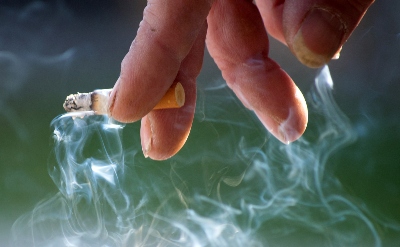Fewer children in Scotland are being admitted to the hospital for asthma exacerbations since the implementation of a law banning smoking in vehicles carrying children, a new study suggests.
Scotland banned smoking in vehicles carrying someone younger than 18 in 2016. Researchers examined data on 32,342 asthma emergency admissions in youth under 16 years old in Scotland between 2000 and 2018, including 13,954 (43%) under 5 years old.
Compared to the underlying trend in hospital admissions for childhood asthma, there was a nonsignificant 1.21% decline in monthly asthma admissions for youth less than 16 years old after the smoke-free vehicle legislation was introduced, researchers report in The Lancet Public Health.

For children under 5 years old, however, there was a statistically significant 1.49% decline in monthly asthma admissions, the study found.
There are several reasons that smoke-free vehicle legislation may have had a bigger impact on asthma for younger children, said senior study author Jill Pell, director of the Institute of Health and Wellbeing at the University of Glasgow.
"Preschool children have higher exposure levels to secondhand smoke in vehicles," Pell said by email. "They are more dependent on their parents, spend more time with them, and are more likely to be transported to places by their parents, and their lungs are more vulnerable to the effects of secondhand smoke."
Neighborhood affluence also appeared to influence the impact of smoke-free vehicle legislation on childhood asthma outcomes.
While this policy shift was associated with a significant decline in monthly asthma admissions for children in the most affluent communities (-2.27%), there was no significant change in asthma admissions among children living in the least affluent areas.
In a test for unknown or unmeasured changes that coincided with the introduction of smoke-free vehicle legislation, the researchers found that smoke-free vehicle legislation also didn't appear to make a meaningful difference in pediatric hospital admissions for other respiratory conditions or for gastroenteritis.
One limitation of the study is a lack of data on less-severe asthma exacerbations treated in the community rather than a hospital setting, the authors note.
Even so, the study results offer evidence that smoke-free vehicle legislation can make a meaningful difference in health outcomes for children, particularly for younger kids who may be unable or unwilling to speak up and tell an adult driver to put out their cigarette, said Jasper Been, a consultant neonatologist and associate professor in perinatal and pediatric public health at Erasmus MC Sophia Children's Hospital in Rotterdam, The Netherlands, who coauthored a commentary accompanying the study.
"Clinicians, they should be very clear to parents that children should not be exposed to tobacco smoke," Been said by email. "This is particularly important for children with asthma or other respiratory diseases, who are more sensitive to the negative health effects of tobacco smoke exposure."
SOURCE: https://bit.ly/3j7wG9e and https://bit.ly/3CaSA46 The Lancet Public Health, online July 16, 2021.
Photo Credit: Getty Images
